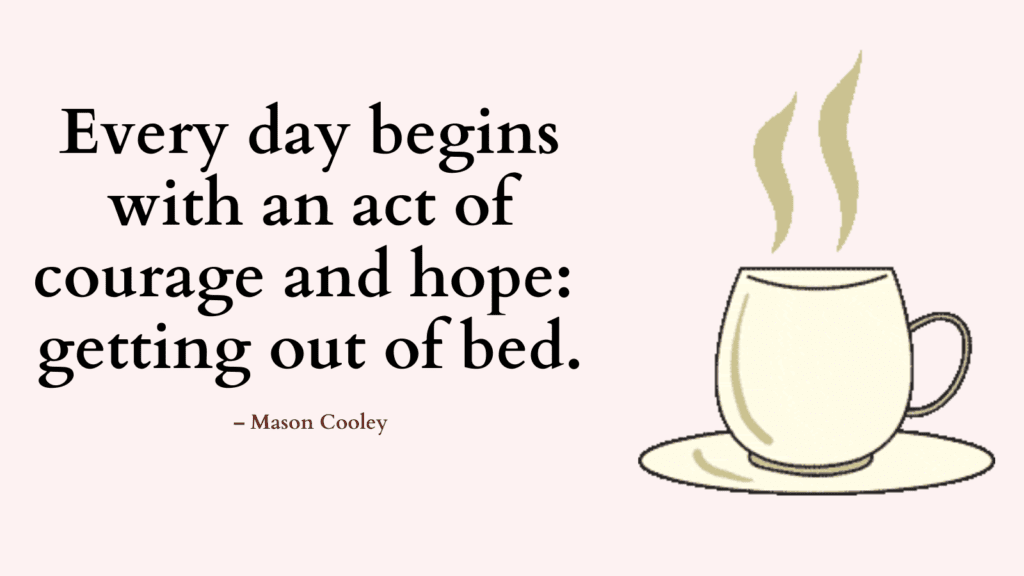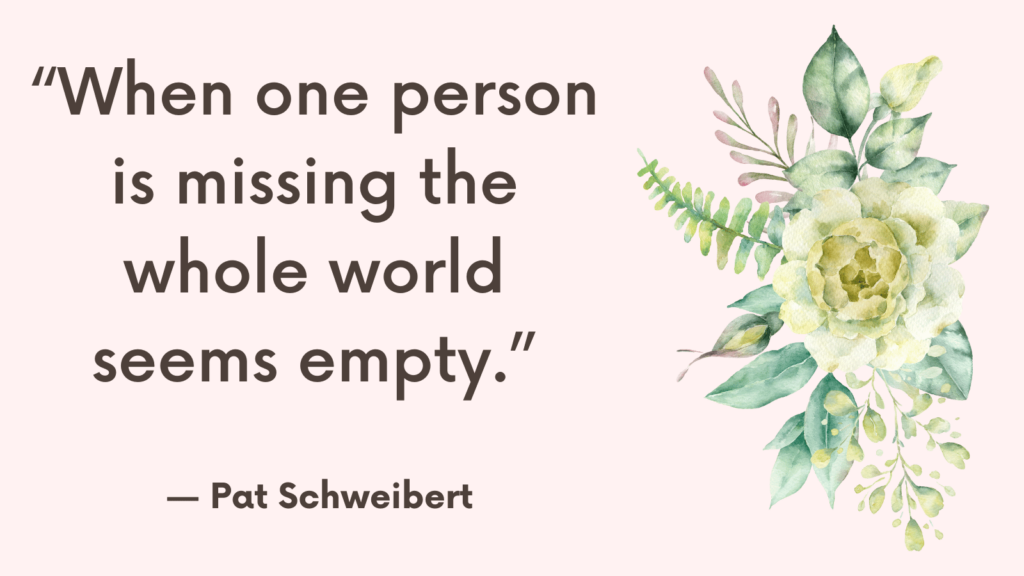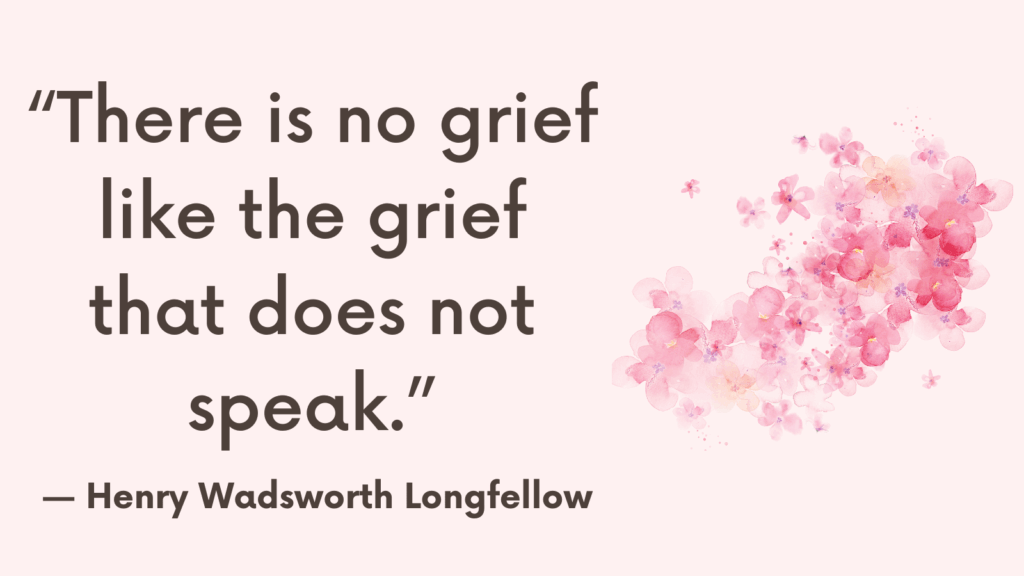Today, you’re going to learn all about bereavement overload and how to process it.
What is Bereavement Overload?
Bereavement overload, also called cumulative Grief, may occur when someone experiences multiple losses at once or within a short period of time, or before processing past losses.
Bereavement overload can be painful and overwhelming.
The person might start wondering how many more losses they can endure.
Grieving multiple losses takes time.
It’s important to keep in mind that each loss needs to be processed separately.
Although emotions can be intense and overwhelming when we have multiple losses to grieve, avoiding the pain through denial, substance use, or staying busy, will only prolong and often suspend the grief process.
People in their 70s and 80s are especially at risk of experiencing bereavement overload. At this age, they begin to experience the deaths of friends and family members at higher rates than in the early part of their lives.
There are also other secondary losses that come with age, such as losing their independence, their mobility, familiar housing, etc.
Related: Grieving Someone Who Is Still Alive – Ambiguous Grief
The Stages of Grief
Many people are familiar with the pioneering work of Dr. Elisabeth Kubler-Ross, who identified five stages that a dying person may go through after being diagnosed with a terminal illness.
She identified those stages as denial, anger, bargaining, depression, and acceptance.
Since then, many people applied the concept of stages to other forms of grief, such as the death of a loved one, divorce, and other losses.
Despite the fact that these stages can often apply to other types of losses, it’s important to consider the individuality and uniqueness of the relationship.
For instance, you may not be in denial about your loss or feel anger and that doesn’t mean you’re doing grief “wrong”.
Related: Suicide Grief Stages – How Are They Different? (+10-Step Guide To Grieve Suicide Loss)
How To Cope With Bereavement Overload?
Recovery is achieved by a series of small and healthy choices.
#1. Identify Limiting Beliefs
Negative beliefs about grief can prevent us from fully processing our loss.
Examples of common limiting beliefs may include:
- You need to be strong for others
- Grieve alone
- Just keep busy
- Just give it time
- Don’t feel bad
- Replace the loss
Identify your limiting beliefs when it comes to grief and challenge them by answering the following questions:
- Is this belief helpful?
- Where is the evidence?
- What could you show to indicate this belief is not true?
- If you were to ask three of your friends if this was true, what would they say?
Related: Grief Comes In Waves: Top 12 Lessons From Grief No One Talks About
#2. Identify Your Needs
Many people feel a sense of guilt when reflecting on their losses. Maybe they have things left unsaid.
Begin the recovery process by answering the question, “What do you wish had been different, better, or more? ”
Do you wish you could thank your deceased loved one? Do you have things you want them to forgive you for?
Related: Best +30 Grief Activities For Adults (+FREE Worksheets PDF)
#3. Write In A Daily Journal
One of the best ways to process your grief is to keep a daily journal where you externalize your pain and write down your thoughts.
You may use grief journaling prompts as a starting point.
Related: Best 21 Grief Journaling Prompts (+FREE Grief Worksheets PDF)
#4. Talk To Someone
Processing bereavement overload can be an overwhelming process.
A mental health professional can help you navigate your grief and integrate your losses in a meaningful way.
Psychologist Locator and the National Register are two websites for locating psychologists in the USA.
Online therapy is also an option. It can be much more affordable than in-person therapy but can be equally effective. (source)
I recommend Online-Therapy.com for affordable online therapy.
(Disclaimer: This is an affiliate link, which means I receive a commission at no extra cost to you if you choose to use this link. You will get 20% off your first month)
Free Printable Worksheets For Grief (PDF)
Conclusion
Grief comes with intense, sometimes overwhelming feelings.
Many don’t resolve their pain and continue life without processing their loss properly.
Eventually, they face other losses and their grief turns into a cumulative one.
Resolving your pain takes a conscious, deliberate effort to integrate your loss instead of avoiding it or isolating yourself.
Related: Resilient Grieving: Best 17 Ways To Manage Grief In The Workplace (+FREE Grief Worksheets)

References
- Grief – Wikipedia
- Grief | Psychology Today
- The Five Stages of Grief (verywellmind.com)
- Grief: Physical Symptoms, Effects on Body, Duration of Process (webmd.com)
- Coping with Grief and Loss – HelpGuide.org
- Grief: Coping with the loss of your loved one (apa.org)
- The Biology of Grief – The New York Times (nytimes.com)
- Grief: A Brief History of Research on How Body, Mind, and Brain Adapt – PMC (nih.gov)
- The effect of bereavement groups on grief, anxiety, and depression – a controlled, prospective intervention study | BMC Palliative Care | Full Text (biomedcentral.com)
- Frontiers | A Qualitative Study on the Grief of People Who Lose Their Only Child: From the Perspective of Familism Culture (frontiersin.org)
- How grief and loss affect your brain, and why it takes time to adapt : Shots – Health News : NPR



